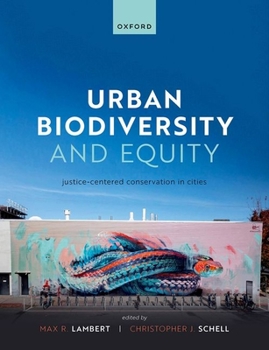Urban Biodiversity and Equity: Justice-Centered Conservation in Cities
This advanced textbook moves beyond a basic scientific comprehension of urban ecosystems to understand the essential details of how scientists, policy makers, and practitioners develop solutions to effectively manage urban biodiversity. Such efforts necessitate unravelling the complex components that bolster or constrain biodiversity including human-wildlife interactions, resource availability, climate fluctuations, novel species relationships, and landscape heterogeneity. However, key to an understanding of these processes is also recognizing the tremendous social variation inherent within and across urban areas. The diversity of urban human communities fundamentally shapes how society designs, builds, and manages urban landscapes. This means that urban environmental management unavoidably must account for human social variation. Unfortunately, urban systems have a history and continued legacy of social inequality (e.g., systemic racism and classism) that govern how cities are both built and managed. This novel text not only highlights these connections, but also illustrates the interdisciplinary approaches needed for advancing a new, justice-centred approach to nature conservation. Urban Biodiversity and Equity is suitable for graduate level students and professional researchers from both natural and social science disciplines studying the ecology, conservation, and management of urban environments and their biodiversity. It will also be of relevance and use to a broader audience of urban ecologists, urban planners, and urban wildlife practitioners.
Format:Hardcover
Language:English
ISBN:0198877277
ISBN13:9780198877271
Release Date:December 2023
Publisher:Oxford University Press
Length:304 Pages
Weight:1.81 lbs.
Dimensions:0.6" x 7.7" x 9.9"
Customer Reviews
0 rating





